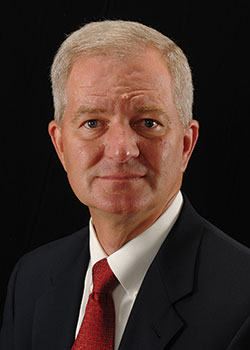Burger 21 (Front Burner Brands)
HQ: Tampa
Units: 12 in 5 states; 20 more in 7 states by the end of the year
Burger 21 has a challenge: How do you attract franchisees in the crowded better-burger category? You address the issue right off the bat in a sales webinar, according to Dan Stone, vice president of franchise development for Front Burner Brands, the parent of Burger 21. Stone kicks off the discussion with an overview of the burger segment and what makes Burger 21 unique. "The goal is to educate [potential franchisees] on the business opportunity," he says. He discusses financials, brand innovation and growth plans.
Stone also tells webinar attendees what type of prospects the company looks for to grow the brand. They must have a business background, restaurant experience preferred but not required, and a commitment to customer service, as well as the financial requirements. He wants to know why they want to be a franchisee. Is it a lifestyle change? Do they have an entrepreneurial spirit that is not being satisfied currently? Is it because of money? "It's usually a blend of reasons," he explains. "We're an owner-operator concept, so we don't want passive investors that are not engaged with the brand. We want our franchisees to have their finger on the pulse of their business at all times."
Finding out about the attendees occurs in follow-up discussions. Stone's team uses email and telephone to determine serious interest and begin the next steps. The "discovery process" consists of a series of templates that validate interest. If all goes well, the company invites the candidate(s) to Tampa for face-to-face meetings with the executive team. "It's not a relationship we take lightly," he says. "If we believe either party has heartburn, we'd rather not move forward and offer a franchise agreement."
Listening to a sales webinar may be a potential investor's first introduction to Burger 21, or it may be a step in the process. The company participates in trade shows throughout the year. The company encourages candidates who express an interest at a show to attend a webinar. Stone says they schedule a webinar a week after a show so as not to lose momentum.
The company website also helps attract candidates. Both methods — trade show and website — represent integral parts of the sales strategy to lead potential franchisees to the educational webinars.
The live webinars feature healthy Q&A sessions. Stone often gets questions about financing, about the benefits of being a multi-unit developer or about the rights of first refusal on additional units if starting with one. A question a brand cannot answer, because of FTC regulations, is information about profit margins or return on investment. "It would be an earnings claim," he explains. "They have to ask an existing franchisee. It's probably one of the most commonly asked questions — which I can't answer."
Unlike some of his fellow franchisors, Stone does talk about some numbers during the webinar. He provides average numbers from the units in terms of gross sales, then gives percentages for costs such as cost of goods sold, hourly labor, and the like. "We know our candidates want to hear that, so I dive in during the first few minutes."
Stone cautions that a webinar should be fast-paced and that the host should have the necessary presentation skills. The content must be engaging, he says. He adds that it is important to use a reliable webinar vendor and that access, entry and attendance are easy and user friendly. "Webinars require maintenance and time," he counsels. "It's not as easy as turning on a switch."




